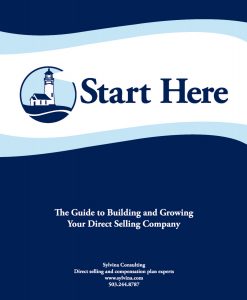 So, you are thinking about joining a direct selling company and you’re not sure which one you should join. The good news is that you have many choices, and the bad news is that you have many choices.
So, you are thinking about joining a direct selling company and you’re not sure which one you should join. The good news is that you have many choices, and the bad news is that you have many choices.
So, how do you choose? Easy.
Evaluate each of your choices by taking the 4-P Test. Ask and answer the 4 P questions I’ve listed for you below. They are:
- Products
- Passion
- Profit
- People
Products
Products matter a lot, because after you join a direct selling company, the topic that you will talk the most about will be the company’s products.
Will you feel comfortable when talking about the features and benefits of these products?
Before you join, take a good look at how the company describes and promotes its products. Read about the products from the company’s website or catalog. Say the words you are reading out loud. If you are scowling when you speak or if you just can’t bring yourself to say these words, see your discomfort as a sign to keep looking for a company whose products you can describe without discomfort.
Will you or any of your family members personally use these products?
If your answer is “yes”, that’s good news. Move forward to ask yourself the next questions. If not, move back to consider another company. You will be more successful – both as a salesperson and as a recruiter of other salespeople and recruiters – when you choose to sell products that you or your family members use personally.
How easy will it be for you to sell the company’s products?
No one wants to join a direct selling company if too much effort is required to make a sale. Great products priced fairly are purchased quickly. Products priced too high – or worse yet, products no one wants – are very difficult to sell. Take the time to do some personal research before you answer this important question. Shadow your prospective sponsor by attending several home parties or other meetings with customers she conducts to observe how customers respond when first presented with the company’s products and how hard the sponsor works to close a sale.
Passion
While offering an income opportunity, all great direct selling companies have a greater purpose. They stand for something and their greater purpose can be felt in of all of their marketing materials.
How do you feel about what the company cares about most?
Whether you are reading, watching or listening to messages crafted by a direct selling company, pay attention to your emotions. The more connected you are to a company’s greater purpose, the more emotionally involved you will be in your new business. When times get tough (and they always do sometimes), your passion for the company’s greater purpose will be a lifesaver to help to keep you from jumping overboard.
Profits
Almost everyone who joins a direct selling company has questions about the income opportunity. They want to know how they will get paid and how much they will earn. I would want to know these company-specific particulars, too.
How do I know if a compensation plan is a good one?
A compensation plan is good if it motivates and rewards each of the 12 behaviors. These behaviors are (a) personally purchasing your products or services; (b) selling to customers (non-participants of the income opportunity); (c) introducing the income opportunity to others (sponsoring/recruiting); (d) team building; (e) training, supporting, and nurturing others; (f) becoming a leader; (g) personally developing leaders; (h) helping other leaders to develop leaders; (i) meeting or exceeding minimum activity requirements; (j) being promoted to a higher title or rank; (k) meeting or exceeding title maintenance requirements; and (l) staying active and engaged in the business (retention). If a company’s compensation plan is deficient in these attributes, your income potential will be limited by the compensation plan.
How much money will I make for every 10 hours of work?
Don’t make the mistake of measuring your income by the hour. Like with any business, some of the hours of work you will put in will generate no income. You’re an entrepreneur, so think like one. Ask others who are already representatives with a company you are considering to tell you how much time they spend on their business every week, and then ask them how much they earn. Compare their answers to those published in the company’s official income disclosure document. While money is never the only criteria, your time has value. If you can’t make enough money for the time you spend on your business, you will likely quit and so we will the people in your downline. You get to decide how much is enough.
What if there is no official income disclosure document?
Good question. If the company is less than one year old, they get a “pass” because they have no history upon which to report. If the direct selling company is more than one year old, it should be publishing an annual income disclosure document which reports average incomes and time spent in the business for each rank in the compensation plan. If the prospective company is more than one year old and there is no income disclosure document, you should wonder why not and ask the company.
Will people continue to buy the company’s products when they are not earning any money from the income opportunity? If you want your company to stay in business long-term and if you answer “no” to this question, say “no” to this company, too. The company you have considered joining is in trouble from the start because of a severe lack of product focus.
All of the largest direct selling companies (those with sales of $1 billion or more) have this in common: they sell products to people who joined as representatives, failed as representatives, but continued to buy the company’s products.
How do I know if this is a “get rich quick” pyramid scheme or a viable direct selling income opportunity? Use this checklist to help disqualify a company from your consideration:
They pay commissions on mandatory enrollment fees.
They pay commissions on starter kits that contain products and they do not offer at least one starter kit option that contains no products upon which no commissions are paid.
They describe your income opportunity as an investment or permit their independent representatives to do this.
They sell products or services that without a compensation plan would have no value.
They have a non-existent or unfriendly refund policy, or a refund policy that violates laws.
They require a personal purchase to be active for their compensation plan.
They have a mandatory autoship policy.
They require large inventory purchases.
They make illegal income claims or permit their independent reps to do so.
They make illegal product claims or allow their independent reps to make them.
If you check even just one box for a company, move on to consider another one.
People
The people inside the companies (whether owners or managers) should matter to you as much as the products. Many of the bad apples in the direct selling channel have owned or ran multiple companies before, which is good for you because you can find this out before you join a company. Bad actors can run to the next company, but they can’t hide from their past. You can thank the Internet for that.
How should I check on the reputations of the owners and managers?
Do a Google search on the name of the individual followed by the word “scam”. Read what you find and then decide for yourself whether the information is credible or not.
Conclusion
Choosing a direct selling company is a personal decision, so treat it that way. Don’t enroll in a company just because your friend asked you to join, or told you it would be great. Also, don’t choose a company just because you like the person who would be your sponsor.
What matters more are products, passion, profit and people (people inside the company).
Consider your options and then make your choice. The good news is that you have many choices, and the bad news is that you have many choices. On second thought, that’s not so bad after all.

 Jay Leisner, the President of Sylvina Consulting, is a top compensation plan and direct selling expert, a trusted adviser to new and established network marketing and party plan companies. For more than 30 years, Jay has enjoyed assessing and improving network marketing, party plan and referral marketing companies across the globe.
Jay Leisner, the President of Sylvina Consulting, is a top compensation plan and direct selling expert, a trusted adviser to new and established network marketing and party plan companies. For more than 30 years, Jay has enjoyed assessing and improving network marketing, party plan and referral marketing companies across the globe.
Leave a Reply